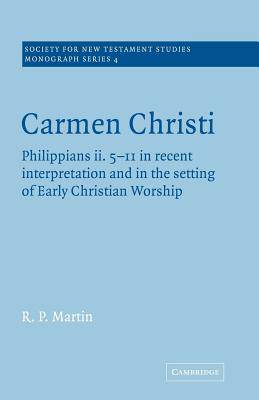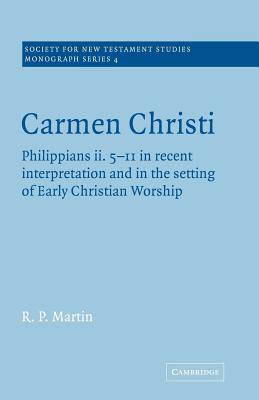
- Afhalen na 1 uur in een winkel met voorraad
- Gratis thuislevering in België vanaf € 30
- Ruim aanbod met 7 miljoen producten
- Afhalen na 1 uur in een winkel met voorraad
- Gratis thuislevering in België vanaf € 30
- Ruim aanbod met 7 miljoen producten
Zoeken
Omschrijving
From the earliest times, commentators have regarded these few verses from the Epistle to the Philippians as doctrinally very important, and a whole literature has grown up around them. Dr Martin studies the passage partly for its own sake as the quintessence of Pauline thought on the person of Christ, and partly as an example of an early type of Christian literature known as 'cultic' or 'confessional'. He sees it as a carmen Christi, a Christological ode used among early believers. Its importance, as Dr Martin shows, reaches far beyond the devotional. The Church which sang this hymn proclaimed for the first time the three 'epochs' in the existence of Christ: he is hailed and confessed first as pre-existent, then as incarnate and humiliated and finally as triumphant. The hymn is thus the earliest extant statement of the basis of the whole Christology of later times.
Specificaties
Betrokkenen
- Auteur(s):
- Uitgeverij:
Inhoud
- Aantal bladzijden:
- 380
- Taal:
- Engels
Eigenschappen
- Productcode (EAN):
- 9780521018999
- Verschijningsdatum:
- 8/09/2005
- Uitvoering:
- Paperback
- Formaat:
- Trade paperback (VS)
- Afmetingen:
- 140 mm x 216 mm
- Gewicht:
- 480 g

Alleen bij Standaard Boekhandel
+ 144 punten op je klantenkaart van Standaard Boekhandel
Beoordelingen
We publiceren alleen reviews die voldoen aan de voorwaarden voor reviews. Bekijk onze voorwaarden voor reviews.








